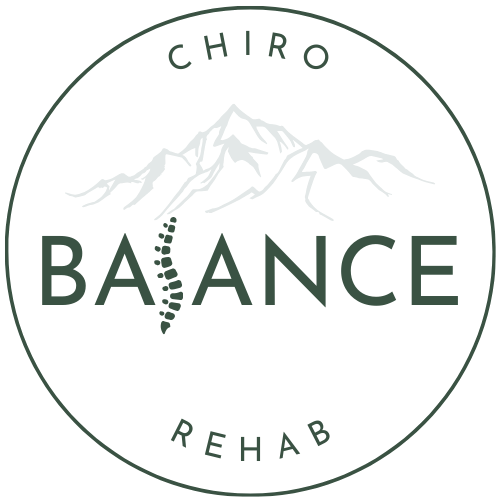Newborn Congestion
What is newborn congestion?
As a pediatric chiropractor in Denver, CO, Dr. Dani frequently sees parents concerned about their newborn’s congestion. Congestion in newborns is often caused by the accumulation of mucus or inflammation within in their tiny nasal passages and airways. This can be due to a variety of factors including exposure to irritants, dry air (hello Colorado), or viruses. Whatever the cause, it's important to address the issue promptly to prevent discomfort and possible complications. A baby’s little airway is 50% smaller than ours and restrictions can create faster and more obvious dysfunction (such as difficulty with feeding).
Common causes of newborn congestion
Newborn congestion can be caused by a variety of factors:
Exposure to irritants in the environment, such as dust, smoke, pet dander, or strong odors. These irritants can trigger the production of excess mucus, leading to congestion. Look at fragrances (perfumes, candles, diffusers, laundry detergent, body washes, lotions, etc.) and avoid essential oils (VERY concentrated) for a trial period to see if these might be contributing.
Every one with kids or who has been around kids knows they are traveling petri dishes. Any viruses (such as common cold) that are introduced to your little peanut can cause nasal congestion and make breathing difficult.
Food sensitivities can contribute to congestion as well. This can include mom’s diet if feeding breastmilk.
Reflux can also contribute to congestion by increasing inflammation within the tiny passageways. This can be especially true if you never seem to find any mucus in the nose.
Effects of newborn congestion on the baby's breathing
Infant congestion can have several effects on the baby's breathing. These include, but are certainly not limited to:
Difficulty breathing through the nose can lead to increased mouth breathing, which may cause dryness in the mouth and throat.
Additionally, newborn congestion can make it challenging for the baby to breastfeed or bottle-feed, as they may have difficulty staying latched due to compensation in feeding patterns and the inability to breathe easily through the nose.
Mouth breathing has been shown to disrupt sleep (this is common in children who wet the bed at a later age, sleep walk, wake up frequently to urinate, have nightmares, etc. They are now even linking sleep disordered breathing to concerns such as anxiety and ADHD symptoms).
When we aren’t breathing through our nose, the air isn’t being filtered in the way that it should which can (longer-term) lead to increased irritation within the tonsils and adenoids.
The tongue being suctioned to the roof of the mouth when swallowing creates a “clearing” of the middle ear which is why ear infections can also be related to chronic congestion, breathing and oral dysfunction.
Natural remedies for newborn congestion
1.Saline and GENTLE suction
Always use a saline solution a few minutes prior to help hydrate the tissue and soften any “boogers”
Only insert the suction far enough to create a seal
Do not close one nostril to suction the other (this increases pressure and can lead to inflammation of those tissues)
Best times to suction: first thing in the morning, at feeds, and/or at bedtime
There should be improvement in symptoms post suction. If not, please discontinue and reach out to a provider. Continuously suctioning with no relief can just create inflamed tissues
2. A humidifier wherever baby sleeps is a great idea to add moisture and decrease irritation to those delicate passageways. Remember to NOT use essential oils as this can be a potential irritant as well. Be sure to clean and maintain the device regularly to prevent the growth of mold or bacteria! Additionally, avoid using excessively hot or cold air in your baby's room, as extreme temperatures can dry out the nasal passages.
3. Facial/Sinus Massage is an incredibly wonderful and therapeutic option for congestion relief. Dr. Dani likes to joke that it’s a natural Breathe Right strip, however this should only be applied after professional guidance to ensure it is being performed properly.
Note: There are recommendations out there to prop your little one’s head up to help mucus drain. DO NOT place anything under your baby’s head to create flexion of the chin towards the chest as this can compromise the airway. INSTEAD, hold your baby upright in your arms if you are trying to use gravity to drain mucus.
When to seek medical help for newborn congestion
If you’ve noticed your little one is struggling with congestion and is not exhibiting signs of illness, it’s always a great idea to seek out a provider that can help identify underlying causes and offer recommendations and/or referrals as needed. Dr. Dani is a pediatric chiropractor in Denver with over 10 years of experience working with newborns!
It goes without saying that if your baby is experiencing any symptoms of sickness such as a fever, loss of appetite, cough, etc. it’s best to seek help from your pediatrician. It is urgent if you notice:
nasal flaring (nose holes are flaring open with breathing)
increased rate of breathing (>60/min.)
changes in skin color / temperature
chest retractions with inhales
skin color changes
these are signs of respiratory distress and should be addressed IMMEDIATELY.
Newborn congestion can be distressing for both parents and babies, but understanding the causes, remedies, and having guidance on when and who to contact can provide much-needed relief. Remember to always prioritize your baby's comfort and consult with a healthcare professional if you have any concerns.
